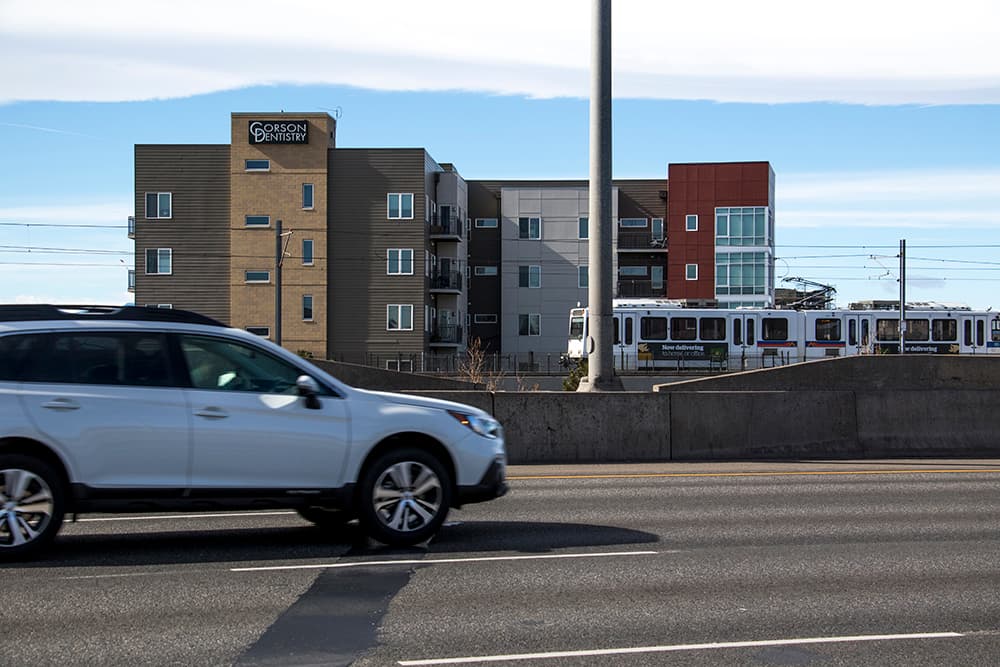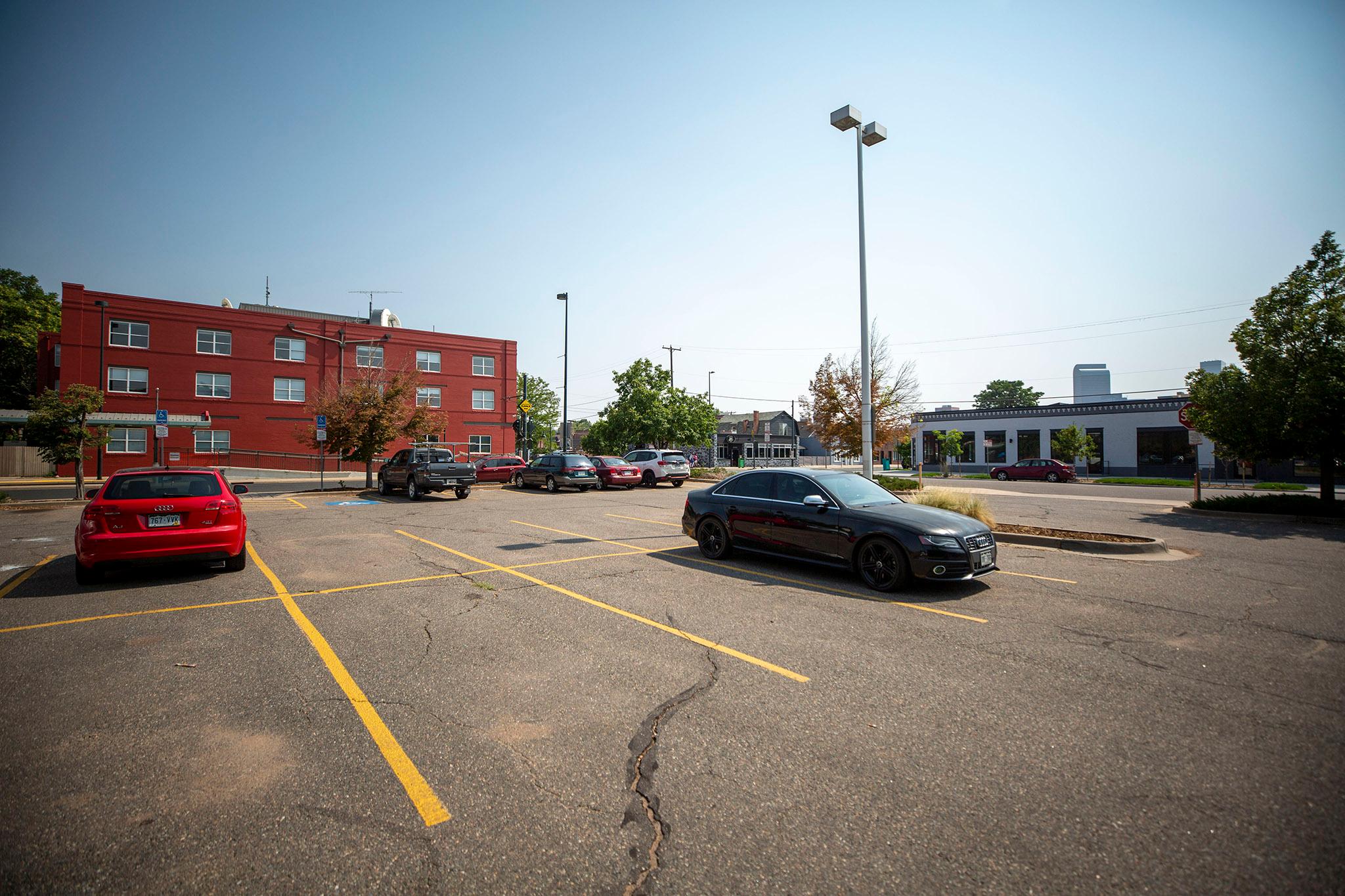Denver's transit agency is starting to make good on a promise to use valuable parking lots near train stations for people instead of just private car storage (also known as parking lots).
Earlier this year, the Regional Transportation District committed to help developers concentrate mixed-income housing and businesses around its stations. The first domino to fall from the "equitable transit-oriented development policy" will be a surface lot at 29th and Welton streets in Five Points, along the L-Line.
RTD will partner with the city's housing department to lease or sell the lot to homebuilders, who they expect to build between 50 and 70 homes, according to RTD documents. The homes will be condos for sale, not apartments for rent.
"It is a for-sale project, which in itself is unique," said Chessy Brady, RTD's manager of transit-oriented development. "To have for sale affordable (housing) in Denver at all is unusual. And to have it be mixed-income, I don't know of other projects where that's happening."
At least a fourth of the homes will be priced below what the free market demands, but that doesn't mean the units will be affordable for everyone. RTD aims for a price point that's attainable for people who make 80 percent of the region's median income or less, or a maximum salary of about $56,000 a year for a household of one.
Still, the fact that the homes will be owned, not rented, is a big deal, said Nick Emenhiser, a housing development officer with the city's housing department. Owning a home is a way to gain wealth in the long term, which is why it's a high priority for the Denver Department of Housing Stability.

"At the top end of that spectrum that we serve, there's affordable homeownership, which is as good as it gets for our community wealth-building strategy," Emenhiser said, adding that the housing department is "bullish" on the 29th and Welton property because Five Points has seen so much displacement from gentrification.
Emenhiser is not the only one. His boss, Mayor Michael Hancock (well, several bosses removed) was more effusive than usual in a letter to RTD.
"We are prepared to contribute substantial gap financing to an appropriate development on this site to support this effort," Hancock stated.
The housing department will help RTD find a developer through a public bid process and will consider giving the project more money in exchange for deeper affordability, Emenhiser said.
Building homes close to the light rail adds affordability for new homeowners.
Using public transit is cheaper than owning a car, which is why Emenhiser said examining housing and transportation costs together, instead of as separately, is a more sophisticated way to analyze affordability.
Housing and transportation are typically a Denver household's top two expenses, according to city documents.
"If it's really hard to chip away at just specifically the housing cost, I think combining housing and transportation as a policy goal can sometimes be a more effective way of chipping away at cost of living," Emenhiser said.
The development is also much better for RTD's bottom line, which was hurt by letting people park on this asphalt asset for free for almost 30 years.
RTD bought the parking lot in 1993 for $97,000 during construction of what is now the L-Line. The transit agency wanted to make good on the on-street parking displaced by the project. Customers of the shops and restaurants on Welton have been parking there for free since then, and RTD has spent money maintaining it.
Now that little square of car storage is worth over $2.4 million.

"Right now the parking lot is a cost for RTD, and the revenue that we could get through a ground lease or through a sale that would support our operations is a clear benefit," said RTD's Brady.
Higher density around the L-Line would mean more riders and therefore more revenue, Brady added.
RTD studies have found that their taxpayer-owned parking stalls -- which are free or very cheap for riders because of a state law -- are not only causing the agency to miss out on as much as $22 million a year, but many of the 34,000-plus parking spaces are going unused and driving up rents.
The 29th and Welton lot is just one of more than 80 parking lots owned by RTD (most are park-and-rides, this one isn't). Brady said the property is one of 15 with "high potential for development."
"We are involved in a lot of conversations on a number of different parking lots in the district with developers who are interested in building affordable projects or other projects," Brady said. "So, I hope this will be the first of more projects that come to fruition."
From the city government's perspective, RTD's new policy opens up previously closed avenues to affordable housing, Emenhiser said.
"I don't want to say that this one policy is the perfect policy, and it's the only policy that RTD ever needs," he said. "I think that it's a fabulous start and we're seeing it open the doors for development opportunities that didn't exist before the policy was put in place.
"RTD is sitting on a lot of prime sites. That's a fact."
An earlier version of this article misspelled Chessy Brady's first name.













